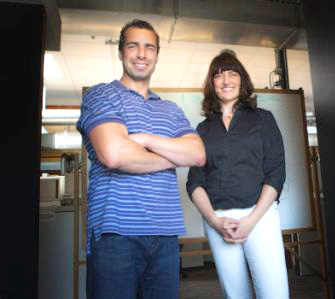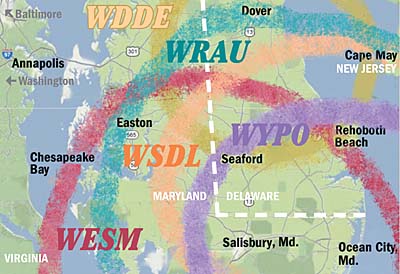Tag: Radio programs
StoryCorps launches newest project – Military Voices Initiative
For the next year StoryCorps, the public radio group collecting and presenting life stories told between family members and friends, will undertake ...Video: Delaware’s first homegrown public radio station celebrates launch
WDDE-FM signed on in August 2012, becoming the first public radio station based in the state of Delaware. Governor Jack Markell cut ...Science Friday suing creationist preacher for trademark violation
The company behind NPR’s Science Friday show is suing a Colorado preacher and radio host for trademark infringement and cybersquatting with his radio show ...WBEZ’s Curious City brings its inquisitive audience into the reporting action
From exploring underground tunnels to tracking the evolution of the Chicago accent, Curious City is an unconventional spin on community-based public media ...Tavis Smiley: It’s time to start walking the walk of service to minority communities
Torey Malatia’s argument against “advocacy journalism” — leveled at Smiley & West after Chicago's WBEZ carried the program for two years — is merely ...Smiley & West lands on two Chicago stations; town hall planned with Amy Goodman
Two commercial radio stations in Chicago have picked up the weekly Smiley & West show after it was dropped from WBEZ, the city’s public ...Hearing Voices ends production
Producer Barrett Golding said had been thinking about ending the public radio show when he learned that NPR was considering dropping its ...From scratch at Cape & Islands
There are now enough public radio stations to reach more than 90 percent of the American public, and pubcasters have adding specialized ...Pubradio reporters debate ‘dissing of daily news’
Freelance radio and print journalist Ashley Milne-Tyte set off a lively exchange of the philosophical differences between radio producers who work under ...Radiolab producers release ‘yellow rain’ email
Producers of the program have made public the full list of questions they had originally emailed to their interview subject for the ...Punditry, audience declines cost Smiley & West stations
Tavis Smiley is defending the tone and content of his weekly public radio show Smiley & West after Chicago’s WBEZ became the latest and ...WXPN offering XPoNential Triple A stream for HD broadcasts
Philadelphia’s WXPN began independent syndication of XPoNential Radio, its 24-hour stream of Triple A music programming, after NPR discontinued its service providing packaged HD ...PRPD honors a co-founder and presents a special award to a key provider of audience ...
The Public Radio Program Directors Association gave its 2012 Don Otto Award to audience researcher Peter Dominowski, who co-founded PRPD in 1987. ...Co-host pairing prompts Brand to exit KPCC
KPCC’s ambitious three-year, $10 million project to fortify its newsroom and serve more people of color has created an unintended casualty: The ...‘Status quo’ no longer feasible for Delmarva’s local stations
An analysis recommends that the Salisbury University Foundation negotiate with another pubcaster to operate its two Delmarva Public Radio outlets as music ...








